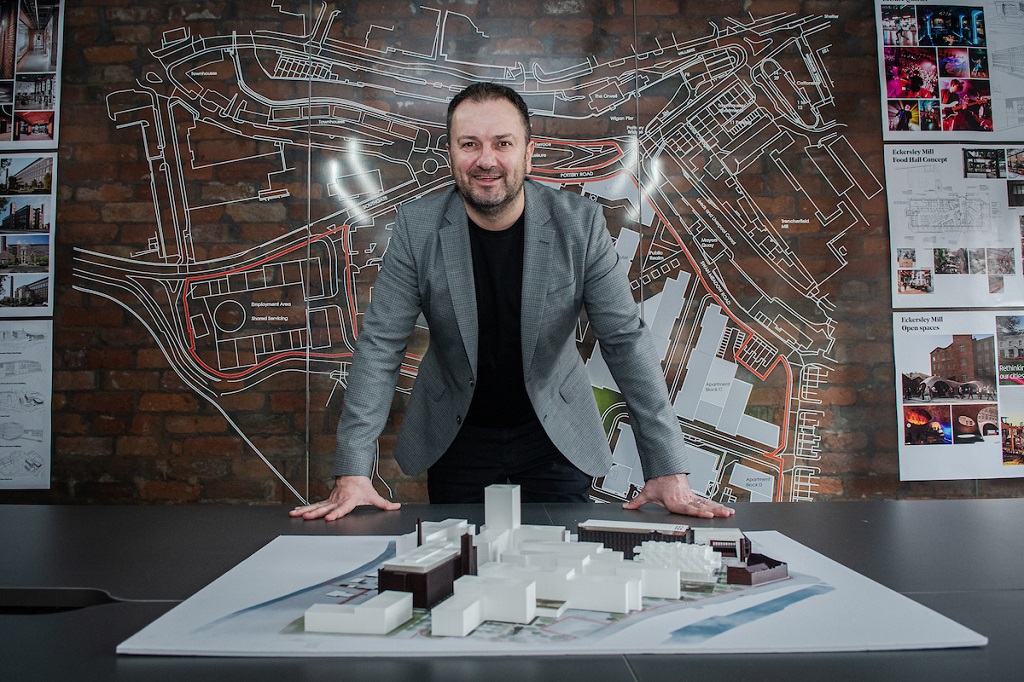NW in 2018 | The co-working curve
Relentless reinvention is a characteristic of dynamic international cities, and looking beyond the UK it’s often instructive to see how the market is changing, writes Jessica Bowles of Bruntwood.
When you glance across the Atlantic, one of the most compelling trends is the continuing evolution of co-working, which is reshaping where and how people work.
For example, female only co-working spaces are proving successful in the USA and Canada, and provide environments where women from different backgrounds and professions can find mutual support, relationship-building and wellness.
The Wing in New York City, Shecosystem in Toronto, and Paper Dolls in Los Angeles allow women the opportunity to feel secure and supported by like-minded females, as well as gaining confidence and building productive connections. The thinking is that when women create and design spaces for themselves, they can better overcome issues that have hampered their progress in traditional office environments.
Repurposing city centre restaurants when they are closed during the day is another bold and unorthodox concept that is seeing success Stateside. Partnering deals with top eateries in New York and San Francisco has enabled Spacious to open up beautifully designed restaurant space for its members to work, meet and do business.
An equally outside-the-box concept is the development of co-living space alongside co-working environments. American companies have created all-inclusive experiences that mean members can join co-living communities and access amenities such as free internet, maid service and companionship.
The Global Workspace Association, a platform for shared space operators and service providers around the world, has noted that the two current buzzwords in the sector are ‘consumerisation’ and ‘user-centred’.
The user experience has become an increasingly powerful market dynamic. We all spend so much of our lives at work, we want attractive, productive environments. Whereas co-working space might have once been promoted solely on the benefits of its flexibility and the potential to network, the market has matured and users now expect superior design and great hospitality as part and parcel of the package.
GWA’s research also makes it clear the profile of co-working users has broadened out beyond freelancers and independent consultants. Small businesses and mobile corporates are taking more and more space. At the same time, providers are offering private offices, making a myth of the idea that co-working means open workspace.
All of this suggests that the old way of working – ‘presenteeism’ and rigid working hours – is increasingly outmoded by more free-thinking and productive working arrangements.
We know that being stuck at our desks nine-to-five every day harms, not helps productivity. Forward-thinking workplaces accommodate a variety of workstyles. Neo in Manchester, for example, has areas to accommodate many different ways of working, such as soft spaces, quiet spaces, social spaces and concentration spaces.
We understand that workers, and especially millennials, are attracted by workplaces that are life-enhancing. So there’s co-working spaces that offer yoga or provide meditation classes – and now most co-working spaces, including our own, have a community manager. A programme of events for the people working within their building in order to facilitate interaction and networking is becoming de rigueur.
Environment was also one of the original drivers of this model. Start-ups in particular want the inherent professionalism that comes from working in dedicated space – not someone’s spare room or garage – but they don’t want to be locked into long contracts that may not suit them in a month, nevermind a years’ time.
The other big driver continues to be scalability. Tom Pickersgill’s recruitment tech start-up Broadstone, based in Neo, was one of the first companies in the city to receive an investment package from the Northern Powerhouse Investment Fund and – given that his business is very much primed for rapid growth – he said that the major attraction of the building was the potential for expansion.
Not only can he scale, he also has access to multiple buildings across Manchester, Liverpool, Leeds and Birmingham. Being able to offer an incubator environment that allows market entrants to mix with – and learn from – some of the leading players in the industry is key. In Leeds, the newly launched Platform building offers exactly that – an incubator for start ups and early stage businesses from the digital tech and creative sectors.
Co-working spaces are very much a part of the equation within tech clusters, which are also shaping our cities. We have long regarded a flourishing tech industry as one of the key indicators of a healthy local economy. Direct employment in the tech sector in Manchester is now at 52,000, making it second only to London. If you add in people working in the wider digital industry, that figure is closer to 85,000, whilst in Liverpool, there are compelling plans to grow its Knowledge Quarter.
Manchester is very much playing to its strengths by focusing on innovation-intensive businesses – especially in the Oxford Road Corridor. This innovation district runs through the campuses of Manchester’s two universities and is an axis of innovation that enables pioneering, knowledge-rich ideas to be brought to fruition.
The Corridor is also a magnet for investment. A £1bn plus expansion programme is underway, the centerpiece of which is the £750m Circle Square neighbourhood. Standing at 14 storeys and 17 storeys tall respectively, the first two new workspaces at Circle Square will provide a combined total of 400,000 sq ft of new space for progressive businesses across a range of sectors, including digital and technology.
We want to see tech clusters and the good supply of co-working space maintained and to become even more established as a ‘must-have’ for cities relying on entrepreneurial and enterprising individuals to drive their economies forward.
Manchester, Liverpool, Birmingham and Leeds have all produced successful business leaders who have gone global. The challenge is there for any ambitious city: find more of these entrepreneurs and innovators, and create the environments that help these people thrive.
- Jessica Bowles is director of strategy at Bruntwood
The North West in 2018 series features guest contributors looking ahead to next year and is published throughout December.




